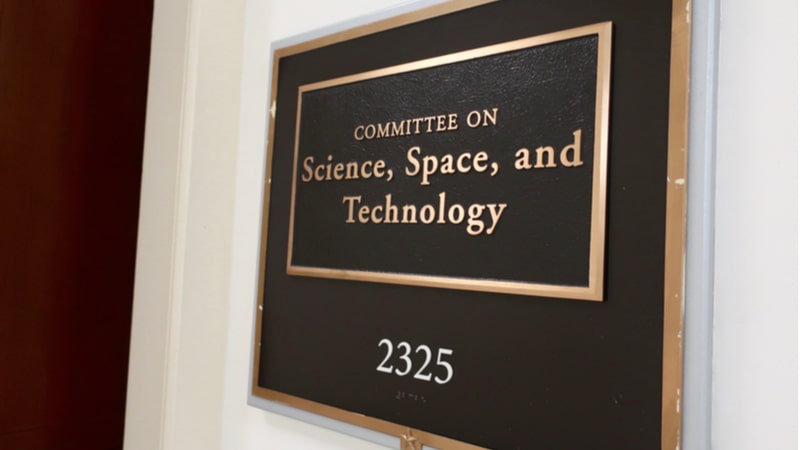
Democratic and Republican members of the House Science, Space, and Technology Committee clashed on Wednesday on a range of tech and science topics including Federal grant funding and the Trump administration’s recent push to gut government diversity, equity, and inclusion (DEI) policies.
Members questioned a panel of expert witnesses at a committee hearing called to examine ways to maintain the United States’ leadership in science and technology.
Witnesses said that the U.S. is losing ground – especially to China – in many scientific areas including artificial intelligence (AI) capabilities.
Sentiment across the panel echoed the need for greater Federal investment in science and tech, and more collaboration with private-sector interests.
“Flexible and efficient collaborations between universities, government, industry, and science philanthropy are key to America’s success in [science and technology],” said Walter Copan, vice president for research and technology transfer at Colorado School of Mines.
The sentiment for increased funding was echoed by Democrats on the committee, who also voiced concerns over President Trump’s attempts to freeze Federal grant funding at the National Science Foundation and other institutions.
Rep. Suzanne Bonamici, D-Ore., said she is concerned about Federal grant pauses negatively impacting future research and development.
“By freezing Federal grants, dismantling scientific integrity protections, [and] gutting climate initiatives, this administration has jeopardized groundbreaking research on oceanic climate change, advanced semiconductor design, on the next generation of clean energy technologies, and more,” Rep. Bonamici said.
Republicans on the committee, including Rep. Rich McCormick, R-Ga., said the Federal grant freezes are providing an opportunity for the government to “review” existing policies on climate change and DEI issues.
“The reason we’ve frozen is because we found a tremendous amount of waste and diversion in those funds that could be helping our universities and our leadership to advance,” Rep. McCormick said.
Heather Wilson, president at the University of Texas at El Paso, told lawmakers that her school does not have a DEI office and prefers to focus on individual student’s needs.
“Our responsibility as leaders is to reach out to the kids who don’t even know that the door of opportunity is there and show them the door and engage them, so they want to come in with us,” Wilson said.
“A forward thinking, less bureaucratic and rigorously merit-based approach to thorough science policy is essential if you want to preserve our technological leadership,” said Samuel Hammond, chief economist at the Foundation for American Innovation
However, Sudip Parikh, CEO at the American Association for the Advancement of Science, said freezing Federal grants to reexamine DEI measures and climate change policies can cause more harm to the scientific community than intended. He said these freezes can stifle progress and innovation by causing early-career scientists to leave their fields entirely out of fear that their research cannot be reliably funded.
“When this lack of certainty happens, even if it’s for a period of two or three weeks, it leaves a scar. It leaves a scar and bit of broken trust in the process,” Parikh said.
Ultimately, witnesses at the hearing agreed that more cooperation must take place between Federal entities and private agencies to increase scientific innovation.
“The opportunity before us is to leverage all the resources that we have available as a nation; utilizing private sector, public sector, philanthropic, availability of resources, driving the future of our workforce, and being goal-oriented to really accomplish what the nation needs,” Copan said.
